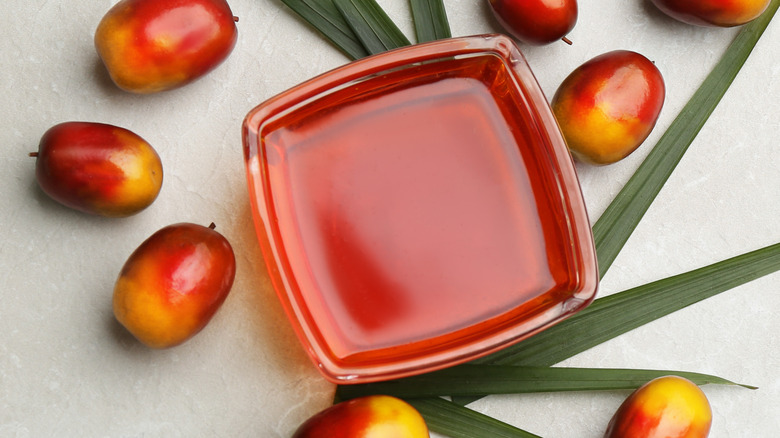The Truth About Palm Kernel Oil: 7 Crucial Facts
Written By James Morgan
Palm kernel oil is a popular ingredient in the culinary world, especially among barbecue enthusiasts. Whether you're firing up the grill for a weekend cookout or experimenting with new recipes, understanding what palm kernel oil brings to the table is crucial. In this comprehensive guide, we'll explore the essentials of palm kernel oil, its benefits, uses, and everything in between.

What is Palm Kernel Oil?
Palm kernel oil is derived from the seeds, or kernels, of the palm fruit. Unlike palm oil, which comes from the fleshy part of the fruit, palm kernel oil is extracted from the inner seed. Rich in saturated fats, it's a versatile oil widely used in cooking, especially for frying and barbecuing.

The History of Palm Kernel Oil
Origins and Early Uses
Palm kernel oil has been used for centuries in various cultures, particularly in Africa where palm trees are native. It was traditionally used for medicinal purposes, cooking, and even as a fuel source.
Modern-Day Applications
Today, palm kernel oil is found in numerous food products, cosmetics, and household items. Its high melting point and oxidative stability make it ideal for frying and grilling, which is why it's favored by barbecue enthusiasts.
:max_bytes(150000):strip_icc()/what-is-palm-oil-fruit-bottle-69d5811917704134bf1ea428fb631499.jpg)
Nutritional Composition
One of the key aspects that make palm kernel oil popular is its nutritional profile. It is rich in saturated fats, primarily lauric acid, which has antimicrobial properties. It also contains vitamin K, magnesium, and some essential fatty acids.

Health Benefits of Palm Kernel Oil
Heart Health
While palm kernel oil is high in saturated fats, some studies suggest that it may help increase good HDL cholesterol levels. This can be beneficial for overall heart health.
Antimicrobial Properties
The high lauric acid content gives palm kernel oil antimicrobial and antiviral properties, making it useful for boosting the immune system.
Skin and Hair Care
Rich in vitamins and fatty acids, palm kernel oil is often used in skincare and haircare products to moisturize and nourish.
Uses of Palm Kernel Oil in Barbecue
Palm kernel oil's high smoke point makes it ideal for grilling. It ensures that your meat and vegetables cook evenly without burning. Additionally, its subtle flavor enhances the natural taste of your barbecue dishes.
Comparing Palm Kernel Oil with Other Oils
Palm Kernel Oil vs. Palm Oil
Though both come from the same fruit, palm kernel oil and palm oil have different uses and benefits. Palm kernel oil is better for high-heat cooking, while palm oil is more suitable for low-heat preparations.
Palm Kernel Oil vs. Coconut Oil
Both oils are rich in lauric acid, but coconut oil has a more pronounced coconut flavor, which may not be suitable for all barbecue dishes. Palm kernel oil, on the other hand, has a neutral taste that complements a variety of foods.
Environmental Impact
The production of palm kernel oil has been a topic of debate due to its environmental impact. Sustainable farming practices are essential to minimize deforestation and habitat loss. Look for products that are certified sustainable to ensure you're making an eco-friendly choice.
FAQs About Palm Kernel Oil
Is palm kernel oil healthy?
Like any other oil, moderation is key. It has certain benefits but should be consumed in balance with other healthy fats.
Can I use palm kernel oil for frying?
Yes, its high smoke point makes it excellent for frying and high-heat cooking methods.
Where can I buy sustainable palm kernel oil?
Look for certifications like RSPO (Roundtable on Sustainable Palm Oil) on product labels to ensure you're buying sustainably sourced oil.
How should I store palm kernel oil?
Store it in a cool, dark place to maintain its quality and extend its shelf life.
What is the difference between palm kernel oil and other vegetable oils?
Palm kernel oil has a higher saturated fat content and a higher smoke point compared to many other vegetable oils.
Can palm kernel oil cause allergies?
It is generally considered safe, but individuals with specific allergies should consult a healthcare provider.
Conclusion
Understanding what palm kernel oil is and its benefits can greatly enhance your barbecue experience. Its high smoke point, nutritional benefits, and versatile uses make it a valuable addition to your cooking arsenal. Remember to opt for sustainable options to support both your health and the environment.
As an Amazon Associate, I earn from qualifying purchases.



